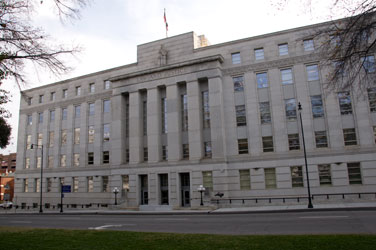When someone creates a trust — any trust — they have some purpose or goal. What is a special needs trust’s purpose? That seemingly simple question is the focus of a recent North Carolina case. Indeed, four different levels of that state’s courts seem to have trouble coming up with a straightforward answer.
The guardianship
Even as Cathy Bass’s mother was dying (more about that later), her local Adult Protective Services office began an investigation. They reported that Ms. Bass was losing her ability to make decisions for herself, and recommended that a guardian should be appointed.
Ms. Bass’s long-time friend, Mark Skinner, wanted to get involved. He wanted to marry Ms. Bass, and he thought he was the best person to handle her personal and financial decisions. He met with local lawyers, inquiring whether she had capacity to get married. He also wondered whether he could serve as her guardian.
As the guardianship proceeding progressed, Mr. Skinner and Ms. Bass went ahead and married. Shortly after that the court appointed him as guardian.
The inheritance
Two years after the marriage, the new Mrs. Skinner’s mother died. That meant that she would receive a small inheritance — but she did not have the capacity to manage the proceeds. Two of her siblings filed a petition asking that a sister be appointed guardian of her estate (what we in Arizona would call conservator).
Mr. Skinner sought his own appointment as guardian of his wife’s estate. Her family objected. They pointed to Mr. Skinner’s history, arguing that he would not know how to handle her finances.
The probate court held a hearing on appointment of a guardian (of the estate) for Ms. Skinner. The clerk conducting the hearing ruled that Ms. Skinner’s inheritance should be placed in a special needs trust, and that Mr. Skinner should serve as guardian and as trustee of the trust.
The special needs trust’s purpose, according to the probate clerk, would be to assure that her “essential government benefits” could continue. As trustee, Mr. Skinner would have to account annually to Mrs. Skinner’s sister, and follow the law governing special needs trusts.
After his appointment, Mr. Skinner hired counsel to prepare the special needs trust document and he began to administer it. Two months later Mrs. Skinner’s sister asked the probate clerk to remove him as trustee. She argued that he was already not following the requirement that he account to her.
The special needs trust’s purpose
At a hearing, Mr. Skinner testified that he had reimbursed himself for legal fees he had incurred. Those fees included the attorney he consulted about Mrs. Skinner’s ability to marry, and the attorney he had hired to seek appointment as guardian. He had also purchased a pre-paid funeral policy, though the trust expressly prohibited him from paying funeral expenses after her death.
Most significantly, though, Mr. Skinner had purchased a home for Mrs. Skinner — and, of course, he lived in the home with her. He had also spent trust funds on new appliances and furniture for the home.
All of this, said the probate clerk, violated Mr. Skinner’s fiduciary duties. He was not supposed to personally benefit from the trust. Payment of his own legal fees, and choosing to buy a home where he would live, violated that principle. The clerk ordered Mr. Skinner’s removal as trustee, appointed Mrs. Skinner’s sister as the new trustee and ordered Mr. Skinner to reimburse all trust expenditures.
Implicit in the probate clerk’s ruling was the notion that the special needs trust’s purpose had been to protect Mrs. Skinner’s medical care. Of the original $170,086.67 deposited into the trust, only $10,313.66 remained. That would not be enough to assure any future care needs for Ms. Skinner.
The appeals
Mr. Skinner asked the probate judge to overrule the clerk’s decision. Instead, the judge affirmed it. Then Mr. Skinner appealed to the state’s intermediate appellate court.
The North Carolina Court of Appeals, in a 2-1 decision, reversed the probate court’s determination and removal of Mr. Skinner. That court ruled that the special needs trust’s purpose was not to preserve funds for future medical care, but to protect public benefits. Without any evidence of an interruption in those benefits, and despite the fact that Mr. Skinner indirectly benefited from trust expenditures, he should not have been removed.
Mrs. Skinner’s sister appealed that decision to the state’s Supreme Court. Last month the highest appellate court in the state sided with Mrs. Skinner’s family.
According to the North Carolina Supreme Court, the question wasn’t really whether the probate clerk was correct. The question was whether the clerk was so obviously wrong that the decision needed to be reversed. Finding that there was sufficient evidence to support the clerk, the high court reversed its Court of Appeals and affirmed the probate clerk and judge. Matter of Estate of Skinner, September 29, 2017
The decision was not unanimous. Of the seven justices on the Supreme Court, four voted to affirm the probate clerk’s decision and three dissented. The dissenters pointed out that there was a fundamental flaw in the probate clerk’s judgment; he had misconstrued the special needs trust’s purpose.
The real purpose of a special needs trust, argued the dissenters, was not to protect medical care for the beneficiary, but to provide a better quality of life without infringing on public benefits. In the absence of any evidence that those benefits had been negatively impacted, the inquiry should have focused on whether Mrs. Skinner’s quality of life was improved.



